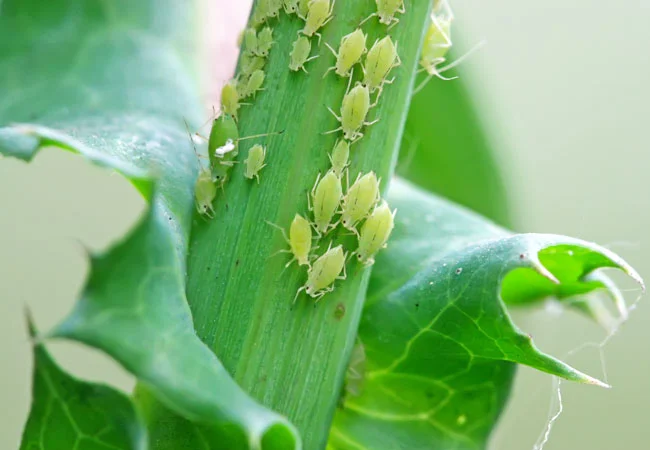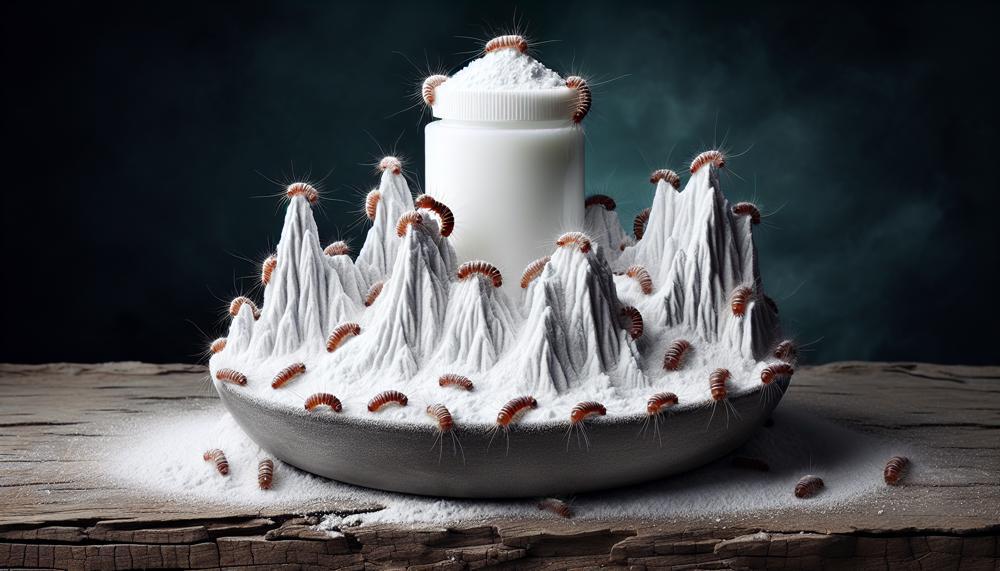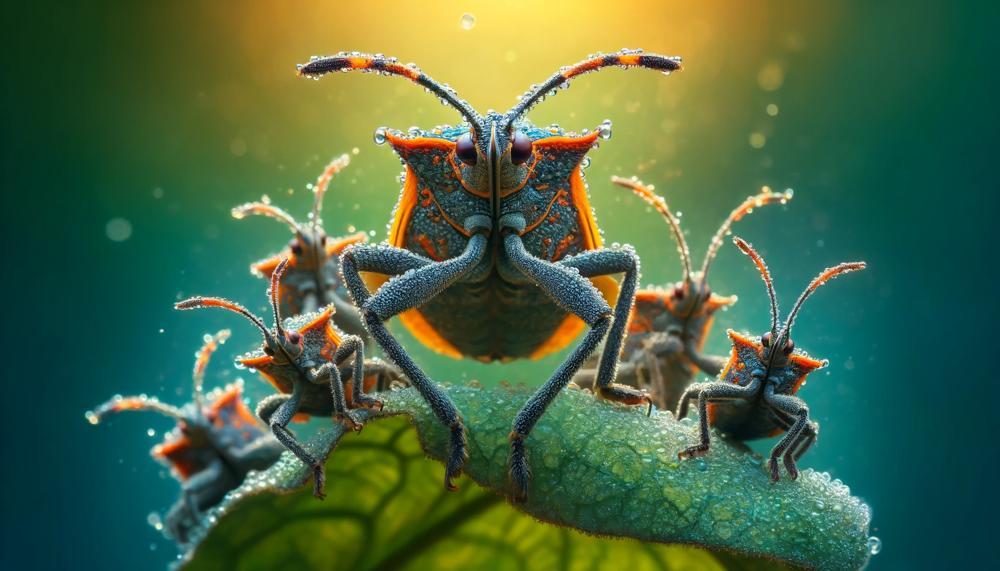Do you find yourself constantly battling against the tiny but mighty aphids in your garden? These pesky insects can quickly wreak havoc on your plants, leaving them wilted and damaged. But don’t despair, as there are natural and safe ways to get rid of aphids for good. In this blog post, we will delve into the best methods for eliminating these pests and keeping them at bay.
In this guide, say goodbye to harmful pesticides and hello to a thriving garden with these tips:
-
- Understanding the life cycle of aphids is crucial in controlling their population
- Introducing natural predators like ladybugs, lacewings, and parasitic wasps can help keep aphids in check
- Homemade sprays using neem oil or garlic can effectively repel aphids without harming your plants
- Pruning infested leaves and using strong blasts of water can physically remove aphids from your plants
- Planting companion plants such as marigolds or chives can act as a natural deterrent for aphids
Bid farewell to those annoying aphids once and for all by following these simple yet effective methods. Your garden will thank you for it.
So, let’s dive in and learn how to get rid of these tiny invaders once and for all.
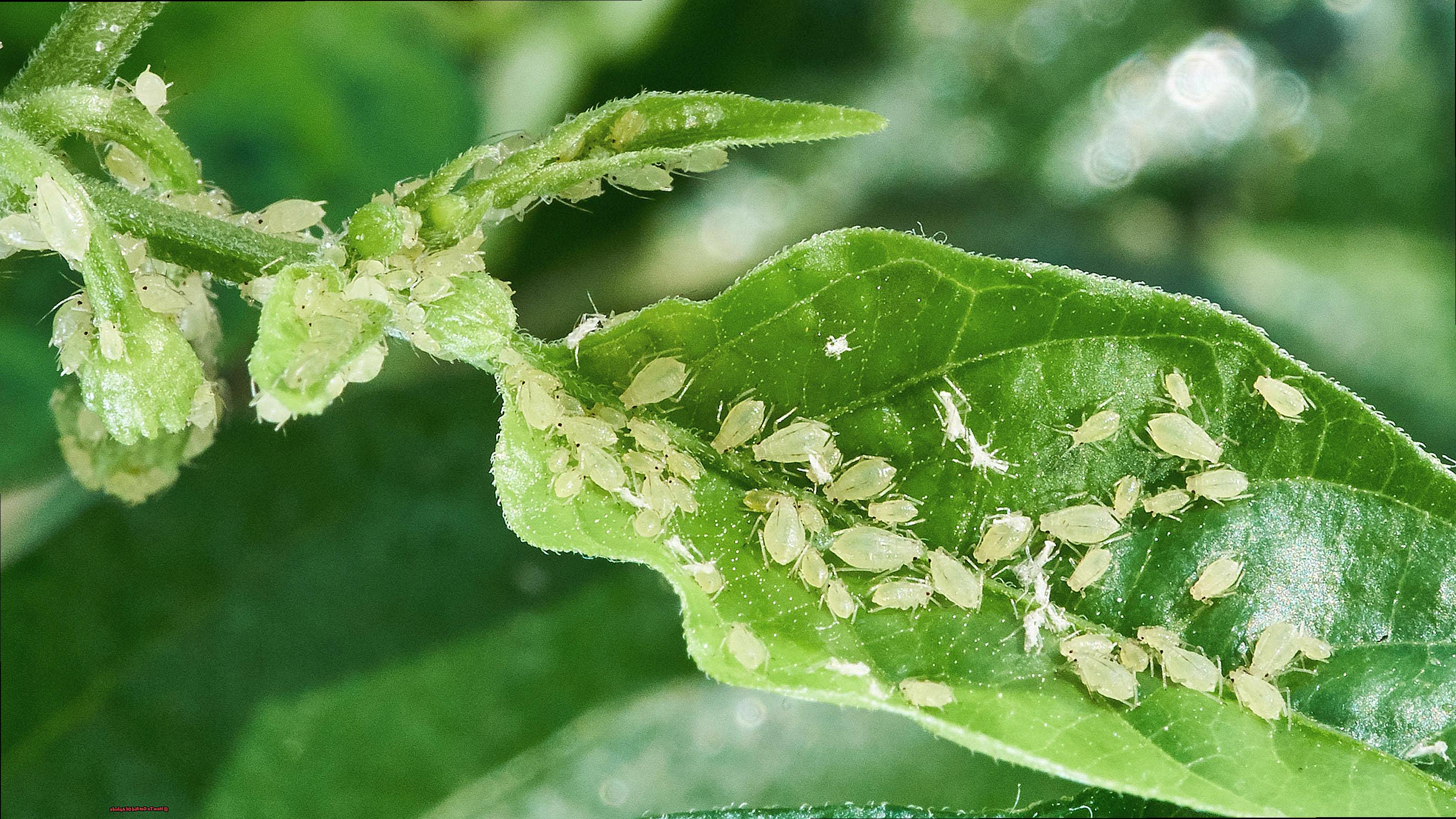
Table of Contents
- 1 How To Get Rid Of Aphids?
- 2 The Importance of Identifying Aphids Correctly
- 3 Natural Ways to Get Rid of Aphids: Introducing Beneficial Insects
- 4 Using Water Pressure to Knock Off Aphids
- 5 Insecticidal Soaps: A Safe and Effective Option for Getting Rid of Aphids
- 6 DIY Aphid Spray: Making Your Own Solution at Home
- 7 Neem Oil: A Natural Remedy for Controlling Aphid Infestations
- 8 Conclusion
How To Get Rid Of Aphids?
Eliminating aphids from your household may pose a daunting challenge, but it is crucial to maintain the well-being of your plants. Here are some reliable and safe strategies to effectively remove aphids from your home:
Introduce Beneficial Insects
Ladybugs and lacewings are natural enemies of aphids, and can aid in regulating their population. You can purchase these insects and release them into your garden to prey on aphids and other pests.
Use a Strong Blast of Water
For smaller infestations, a powerful stream of water can be an efficient approach to get rid of aphids. Simply spray your plants, focusing on the underside of leaves where aphids typically hide, to dislodge and wash them away.
Insecticidal Soaps
These soaps are composed of natural ingredients and work by suffocating the insects. They are harmless to most plants and do not cause harm to beneficial insects. Dilute with water and apply onto your plants for optimal results.
DIY Aphid Spray
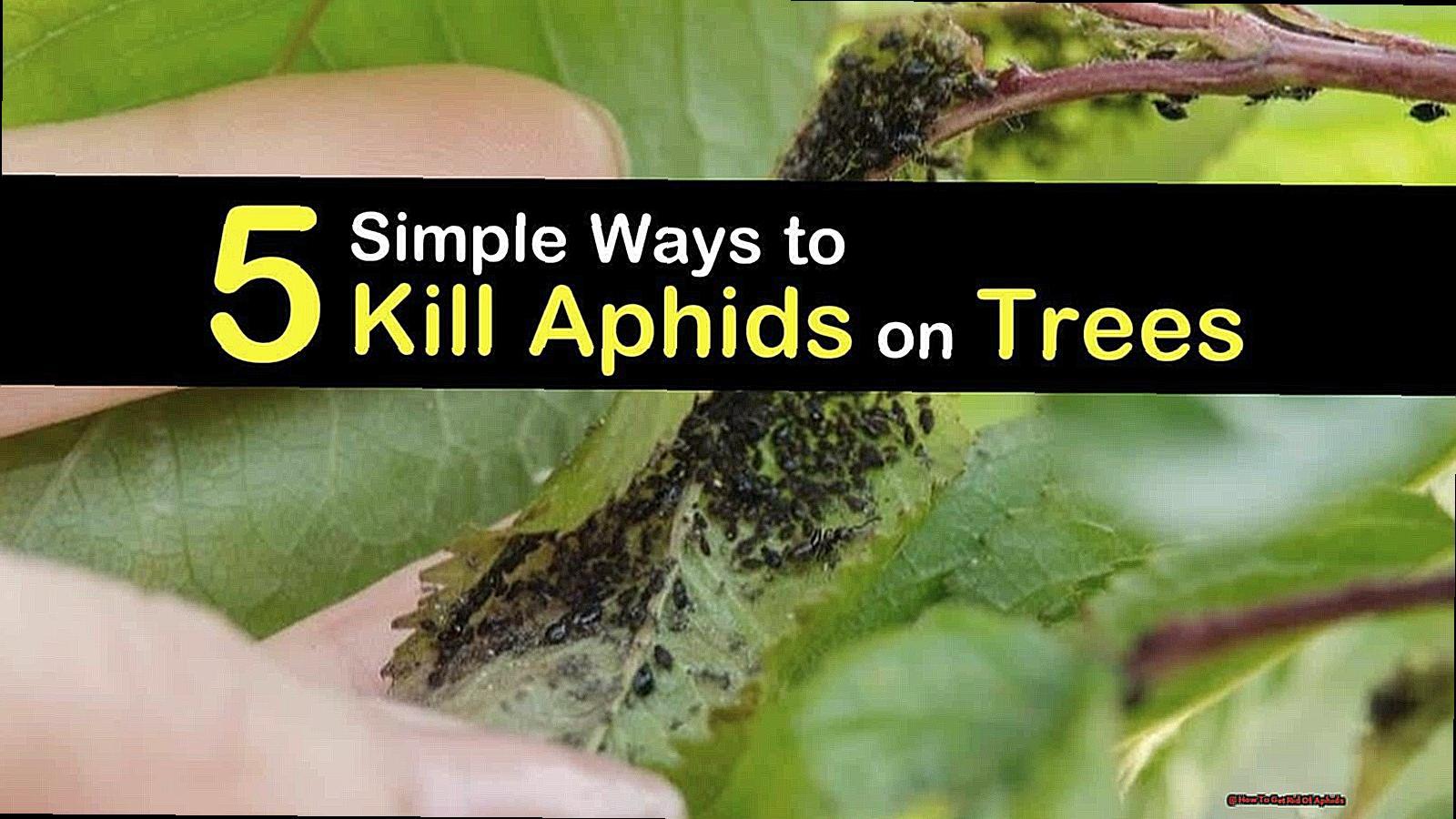
Create your own DIY aphid spray by mixing dish soap, vegetable oil, and water. This concoction will suffocate the aphids and smother their eggs.
Neem Oil
Extracted from the neem tree, neem oil disrupts the hormonal balance of aphids, preventing them from reproducing. It also acts as a repellent to keep aphids away from your plants.
Horticultural Oils
These oils work by smothering the insects and their eggs, effectively eliminating aphids. Follow instructions on the bottle for best results.
Companion Planting
Planting certain herbs such as chives, garlic, or catnip can repel aphids from your garden.
The Importance of Identifying Aphids Correctly
Correctly identifying aphids is an essential step in effectively eliminating these pesky pests. With over 4,000 species of aphids, each type may require a different approach for efficient eradication. By accurately identifying the specific type of aphid infestation, homeowners can choose the most appropriate and efficient method to get rid of them without wasting valuable time and resources.
Not only can correctly identifying aphids save time and resources, but it can also prevent future infestations. Each species of aphid has its own unique life cycle and reproduction methods, and understanding these characteristics can aid in creating a successful long-term strategy to keep them away from your home and plants. This also helps prevent misidentifying other insects or pests that may resemble aphids, such as lacewings or parasitic wasps.
In addition to protecting beneficial insects, correctly identifying aphids is crucial for the safety of plants and crops. Different types of aphids may feed on specific plants, and using the wrong treatment method can cause harm or even death to your plants. By knowing the specific type of aphid infesting your plants, you can choose a targeted treatment method that eliminates the particular insect without damaging your plants.
Furthermore, correctly identifying aphids is vital for health and environmental reasons. Many insecticides used to eradicate pests can be harmful to humans and other animals if not used correctly.
By identifying the type of aphid infestation, homeowners can opt for more environmentally friendly and safer treatment methods, such as natural or organic options, to eliminate the pests without causing harm to themselves or the environment.
Natural Ways to Get Rid of Aphids: Introducing Beneficial Insects
In the battle against aphids, nature has provided us with powerful allies – ladybugs, lacewings, parasitic wasps, and generalist predators like ground beetles, hoverflies, and spiders. These beneficial insects serve as natural predators of aphids, effectively reducing their numbers without the need for harmful chemicals. Ladybugs and lacewings can be purchased and released into the garden, while parasitic wasps can be attracted by planting specific flowers.
As for generalist predators, they can be encouraged to take up residence in the garden by providing a diverse habitat with a variety of plants.
But why rely on these insects instead of simply using insecticides? The answer lies in their delicate balance with nature. Chemical insecticides not only harm aphids but also these beneficial insects that we depend on for natural pest control. By using insecticides, we disrupt this balance and end up doing more harm than good.
Therefore, it is crucial to consider alternative methods such as introducing beneficial insects to control aphid populations. These insects are highly effective and environmentally friendly, making them a win-win solution for both gardeners and the ecosystem.
Using Water Pressure to Knock Off Aphids
Water pressure is a highly effective and environmentally friendly means of eliminating aphids from your plants. Below are the steps to properly utilize water pressure for aphid removal:
- Use a watering hose with a regulated nozzle to create a powerful jet of water.
- Aim the stream of water towards the infested areas of your plants, ensuring coverage on both sides of leaves, along with stems and branches.
- Be cautious not to use excessive pressure that may harm your plants. Adjust accordingly depending on plant sensitivity.
- Support weaker stems and branches while spraying to prevent breakage.
- For immediate aphid elimination, use hot water, but with care as it may also harm plants.
- Repeat this process every few days until all aphids are eradicated.
- After each spraying, manually check for any remaining aphids and remove them if necessary.
By utilizing this method, you are not only effectively removing aphids without harmful chemicals but also preserving beneficial insects that serve as natural predators to these pests.
The advantages and disadvantages of using water pressure for aphid control:
| Pros | Cons |
| Environmentally-friendly | May damage sensitive plants if not careful |
| No use of toxic chemicals | Requires regular spraying for complete aphid eradication |
| Preserves beneficial insects | Hot water can also harm plants |
| Economical |
In addition to using water pressure, it is crucial to incorporate other pest control methods such as utilizing beneficial insects, removing infested plant parts, and promoting healthy plant growth to prevent future aphid infestations.
Insecticidal Soaps: A Safe and Effective Option for Getting Rid of Aphids
Insecticidal soaps, containing potassium salts of fatty acids as the main ingredient, are highly effective in controlling aphids. These soaps work by disrupting the structure and permeability of insect cell membranes, ultimately suffocating and killing the pests. Their efficacy is particularly prominent on soft-bodied insects such as aphids, as their thinner cuticles make them more vulnerable to suffocation. However, for hard-bodied pests like beetles, a stronger insecticide may be necessary.
One of the major advantages of using insecticidal soaps is their lack of residual activity and quick degradation after drying on leaf surfaces. This makes them a safe option for use on various food crops, as they can be applied until the day of harvest without any adverse effects. However, it is important to note that these soaps should not be used near bodies of water as they can be toxic to aquatic organisms.
Not only are insecticidal soaps low in toxicity for mammals, making them environmentally friendly, but they are also an essential tool in integrated pest management when used correctly. It should be noted that their effectiveness may be reduced and their toxicity to plants increased when used in hard water with high mineral content.
To ensure maximum effectiveness, it is recommended to apply insecticidal soaps in slow-drying conditions with thorough coverage. This ensures that the soap stays on the aphids for a longer period, ultimately suffocating them. Additionally, plant sensitivity should be taken into consideration, and caution should be exercised when using hot water as it may damage some plants.
Overall, insecticidal soaps provide a safe and effective alternative to harmful chemicals when trying to eradicate aphids from plants. They are readily available in most gardening stores and easy to use.
DIY Aphid Spray: Making Your Own Solution at Home
If you’re looking to create a DIY aphid spray at home, you’ll need some basic household ingredients like vinegar, water, essential oils, liquid soap, and dish soap. Get started by following these steps to create your own solution:
Vinegar Solution:
- Combine 4 oz of vinegar with 4 oz of distilled water to make a potent vinegar solution.
- Pour the solution into a garden spray pump and directly target the aphids with it to effectively eliminate them.
- Vinegar is a natural acid that can disrupt the cell membranes of aphids and other pests, causing them to die off.
Essential Oil Spray:
- Fill a quart jar with water and add 2-3 teaspoons of liquid soap.
- Next, add 10-20 drops of an essential oil (like peppermint, clove, or rosemary) to the jar.
- Shake the jar well to mix all the ingredients together and then use the spray to kill aphids.
- Essential oils have insecticidal properties that can effectively control aphids without harming beneficial insects.
Soap Spray:
- Dilute a few tablespoons of liquid dish or insecticidal soap in a pint of water.
- Fill a squirt bottle with the mixture and use a dish sponge to apply it to your infested plants.
- Soap sprays work by suffocating aphids and should be applied when temperatures are below 90°F.
Dawn Dish Soap Spray:
- Add 5 drops of original blue Dawn dish soap to a spray bottle.
- Fill the bottle with warm water and lightly mist the infested plants with the sudsy water.
- Let it sit overnight and check for results the next day.
- Dawn dish soap contains detergents that can weaken and kill aphids on contact.
It’s important to note that these DIY aphid sprays may also harm beneficial insects like ladybugs and bees, so use them with caution. It’s also recommended to test any spray on a small area of the plant before applying it to the entire plant. Additionally, make sure to avoid spraying in direct sunlight as this can damage the leaves.
Neem Oil: A Natural Remedy for Controlling Aphid Infestations
Neem oil is a potent natural remedy for managing aphid infestations in your garden. Derived from the seeds of the neem tree, native to India and other parts of Asia, it has been utilized for centuries in traditional medicine and as a natural pesticide for its strong insecticidal properties.
The mechanism of action of neem oil involves disrupting the life cycle of aphids by interfering with their hormonal system, hindering their ability to lay eggs and reproduce. Additionally, it also acts as a powerful repellent, making it challenging for aphids to locate and feed on plants.
Moreover, neem oil has a suffocating impact on aphids. Upon direct contact with the insects, it can rapidly suffocate them and halt their feeding, resulting in their demise. This makes it an effective and natural method of eliminating aphids without causing harm to beneficial insects or plants.
Furthermore, neem oil possesses systemic characteristics, meaning that when applied to the soil, it can be absorbed by plants and provide long-term protection against aphids.
Additionally, neem oil is non-toxic and safe for use around pets, humans, and other animals. This makes it a preferred choice for individuals seeking an eco-friendly solution for managing aphid infestations.
Utilizing neem oil as a foliar spray or soil drench can effectively control current aphid infestations and prevent future ones. It is crucial to adhere to the instructions on the product label and avoid using neem oil in extreme temperatures or during peak sunlight hours.
Conclusion
In conclusion, although aphids may seem like an insurmountable problem in your garden, fear not.
Armed with the right knowledge and techniques, you can successfully eliminate these tiny invaders. By understanding their life cycle and incorporating natural predators like ladybugs and lacewings, you can effectively control their population.
Homemade sprays using neem oil or garlic serve as safe and natural repellents for aphids. For a more hands-on approach, physically removing them through pruning and using water pressure has proven to be effective.
You can also plant companion plants like marigolds or chives to act as a deterrent for these pesky pests. However, it is crucial to correctly identify aphids before choosing a treatment method to avoid harm to beneficial insects and plants.
By incorporating these methods into your pest control strategy, you can bid farewell to aphids and welcome a thriving garden without resorting to harmful pesticides.

